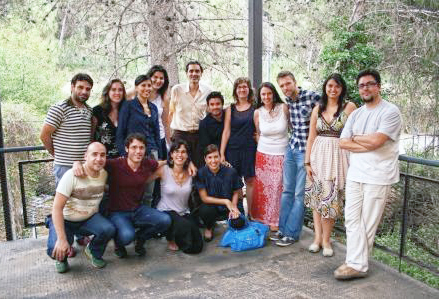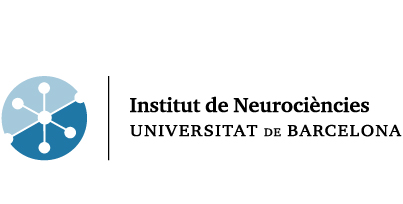
GUILLEM FEIXAS
Position: Full Professor
Research team
Francisco José Eiroa Orosa
Postdoctoral researcher
feiroa (at) ub.edu
Juan Carlos Medina Alcaraz
Early stage researcher
jcmedina (at) ub.edu
Helena Garcia Mieres
Early stage researcher
helenagarcia (at) ub.edu
Danilo Moggia Naváez
Early stage researcher
danilomoggia (at) ub.edu
Contact details
Prof. Guillem Feixas
Department of Clinical Psychology and Psychobiology
Office 3601, Faculty of Psychology, Pg. Vall d’Hebron 171
08035 Barcelona (Spain)
933125100
gfeixas (at) ub.edu
Research Interests
Our group is aimed at advancing the knowledge and increasing the quality of psychological interventions in the areas of mental and physical health. For that purpose, we have adapted and validated instruments for the assessment of the outcome of these interventions (e.g., CORE-OM) which can now be used by other researchers and practitioners (www.ub.edu/terdep/core).
We pay particular attention to the study of identity processes, cognitive conflicts, and their role in the change process. To this aim, personal construct and self-regulation theories (both based on constructivist epistemology) have been important sources of inspiration for implementation, both in research and practice. Our work is conducted using methods derived from these approaches, such as textual or content analysis and the Repertory Grid Technique (RGT), a technique with which we can identify conflicts in the cognitive structure of interviewees. These conflicts (or dilemmas) often become a hindrance for personal development or progress either in life or in psychotherapy.
With these methods we have studied the cognitive structures of people of different conditions (e.g., depression, eating disorders, fibromyalgia, victims of partner violence) and compared them to community and student samples.
We have also created some therapy manuals for those interventions derived from the above mentioned theories with potential for innovation and compared them (in terms of their efficacy and utility) with others like cognitive behavioral therapy in randomized clinical trials. One of these trials targeting depressive symptoms of patients with fibromyalgia is now being launched. It compares the efficacy of systematic case formulation based in personal construct therapy with that based in cognitive behavioral therapy.
A complementary line of research explores construing processes in couples and families, and their role in systemic couples/family therapy.
We have recently incorporated a line of research consisting in the analysis of strategies to raise awareness among mental health service users and professionals to improve communication between them, enhancing participation in the services of the former and critical reflection and self-care of the latter.
Current Research Lines
- Process and outcome research in psychotherapy
- Couples and family therapy
- Efficacy and utility of constructivist psychological treatments
- Construction of self and others (identity processes)
- Cognitive conflicts and their role in mental and physical health
Technologies / methods
- Repertory Grid Technique (RGT). This is an instrument that enables researchers and practitioners to study the cognitive structures used by the individual to ascribe personal meanings to ongoing events. We have developed the free online software RECORD 5.0 aimed to analyse repertory grid data (tecnicaderejilla.net).
- Content Analysis of personal constructs. We have developed a coding system in English, Spanish and Italian which is being used to categorize the personal constructs appearing in the RGT or elicited by other means (interviews, autobiographical texts, personal documents, etc.).
- Dilemma-Focused Therapy. This is a psychological intervention aimed at resolving the cognitive conflicts detected either during the therapy process or using the RGT. We have developed therapy manuals for specific problems (e.g., depression) and more general ones.
Highlighted publications
· Brown, N. J. L., Lomas, T., & Eiroa-Orosa, F. J. (2017). The Routledge International Handbook of Critical Positive Psychology. London, UK: Routledge.
· Feixas, G., Montesano, A., Compañ, V., Salla, M., Dada, G., Pucurull, O., Trujillo, A., Paz, C., Muñoz, D., Gasol, M., Saúl, L. Á., Lana, F., Bros, I., Ribeiro, E., Winter, D., Carrera-Fernández, M. J. y Guàrdia, J. (2014). Cognitive conflicts in major depression: Between desired change and personal coherence. British Journal of Clinical Psychology , 53, 369-385. doi: 10.1111/bjc.12050
· Montesano, A., López-González, M. A., Saúl, L. A., & Feixas, G. (2015). A review of cognitive conflicts research: A meta-analytic study of prevalence and relation to symptoms. Neuropsychiatric Disease and Treatment, 11, 2997-3006. doi: 10.2147/NDT.S91861
· Trujillo, A., Feixas, G., Bados, A., García-Grau, E., Salla, M., Medina, J. C., Evans, C. (2016). Psychometric properties of the Spanish version of the CORE-OM: Clinical Outcomes in Routine Evaluation- Outcome Measure. Neuropsychiatric Disease and Treatment, 12, 1457–66. doi: 10.2147/NDT.S103079
· Escandón-Nagel, N., Peró, M., Grau, A., Soriano, J. y Feixas, G. (en premsa). Emotional eating and cognitive conflicts as predictors of binge eating disorder in patients with obesity. International Journal of Clinical & Health Psychology. doi: https://doi.org/10.1016/j.ijchp.2017.09.003



